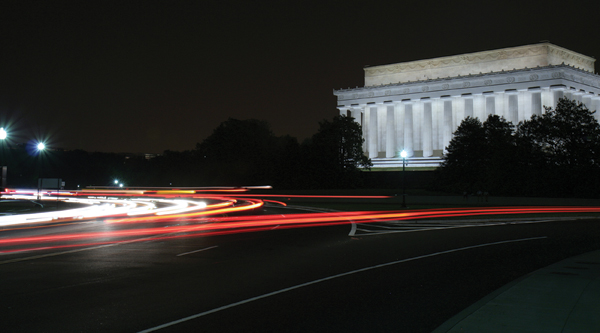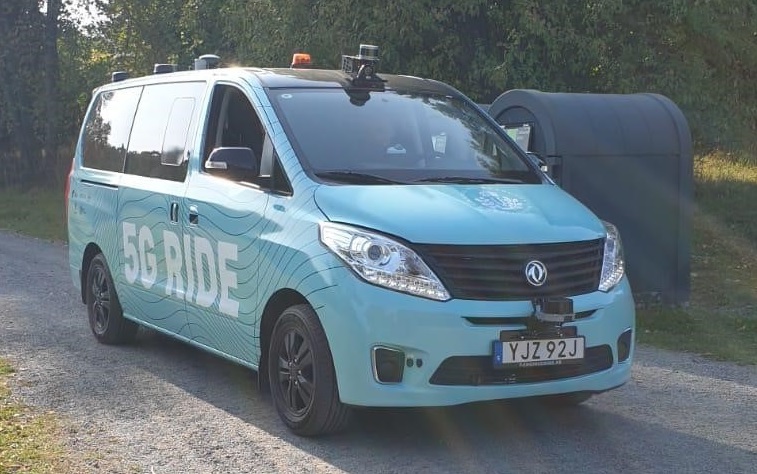For nearly two decades, the highly populated Washington Metropolitan area has experienced unrelenting growth in traffic volumes. Mitigating the concomitant problems resulted in the establishment of the Washington Corridor Initiative and significant local ITS initiatives which are the focus of events, sessions, and tours as an integral part of year’s ITS America Annual Meeting.

Night shot of Washington Noght Trails
For nearly two decades, the highly populated Washington Metropolitan area has experienced unrelenting growth in traffic volumes. Mitigating the concomitant problems resulted in the establishment of the Washington Corridor Initiative and significant local ITS initiatives which are the focus of events, sessions, and tours as an integral part of year’s ITS America Annual Meeting.
Keeping transportation moving in a highly populated region is no easy task, and when that area is the Washington Metropolitan area the problems are compounded. No other part of the country sees more public gatherings of the size that come to the nation’s capital, all with their security and traffic management implications. It’s an area that also has its weather and geological challenges with snowstorms, hurricanes, and earthquakes.To complicate things further, with Washington, DC at its centre, the area also takes in chunks of Maryland and Virginia. Without close coordination between their departments of transportation, and other agencies, a nightmare scenario would be played out every day and the nation’s capital would grind to a standstill.
That it doesn’t, and why and how it doesn’t, is the result of a high level of orchestration and coordination between public agencies, the private sector, and also, significant local ITS deployments. Little wonder then that at this year’s Annual Meeting
This morning there is an invitation-only Washington Region Transportation Leaders breakfast from 8.00-9.30am, moderated by former USDOT deputy secretary, Mort Downey, which brings together leaders from Maryland, DC and Virginia to discuss the challenges they face and the innovations they are bringing to bear to serve the transportation needs of their jurisdictions.
But you don’t have to be there to get a good grasp of the issues and challenges: at some time during this event, make sure you take time to stop by Booth 135 in the exhibition hall where you will find the Washington Corridor Initiative Display. If you do, you will be able to network, engage with the practitioners, and obtain the latest information on the ITS deployments throughout the region.
If you want to look at things more closely, there’s a special session today specifically about the corridor: SS06 Coordinating Transportation Operations in the Washington Corridor, from 4.00-5.30pm, will discuss the highly orchestrated coordination that takes place between the District of Columbia, Maryland, and Virginia transportation agencies. Other special sessions devoted to the Washington Corridor include SS22 Keeping the Travelling Public in the Know, tomorrow from 2.00-3.30pm, and SS40 Keeping Transportation Moving in a Highly Populated Region on Wednesday from 2.00pm-3.300pm. This comprehensive session will highlight the District of Columbia’s ITS Master Plan and its optimisation and critical infrastructure initiatives; Maryland’s programme to offer dynamic message sign information to travellers, and Virginia’s Beltway Express Lanes program and its arterial transportation management activities.
For a more hands-on, in-depth insight, then check out the tour programme. Today, from 1.00-4.00pm, you have a unique opportunity to visit the District of Columbia DOT Operations Centre.
The tour costs $55, while tomorrow from 11.00am-3.30pm you have an opportunity of taking the Virginia Transportation Operations and I-495 Express Lanes Tour which costs $80 but lunch is included. Also tomorrow, from 1.30-5.30pm, there’s a free tour to the Saxton Transportation Operations Laboratory, the newest laboratory at FHWA’s Turner-Fairbank Highway Research Center.











